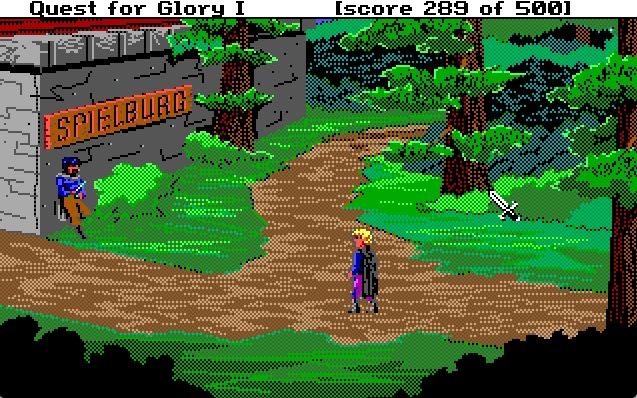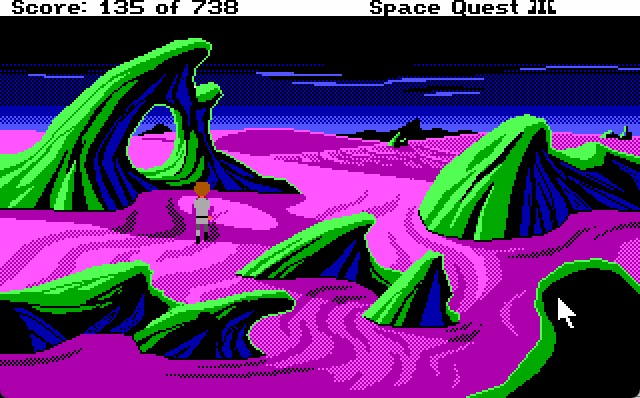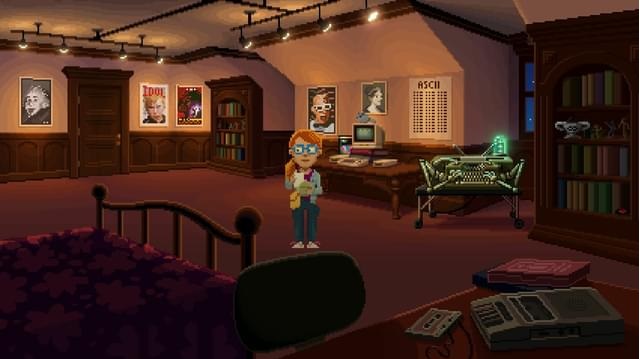Adventure gamers love point-and-click, but I do not.
I know it’s a minority opinion, but when command-typing was phased out of the adventure game genre, I fell off with them. With the type-parser, I felt like I had infinite possibilities always at my fingertips, whereas point-and-click felt more streamlined and controlled, like I was on rails. If point-and-click was a fun amusement park ride, the type-parser felt like I was let loose in the whole park itself.
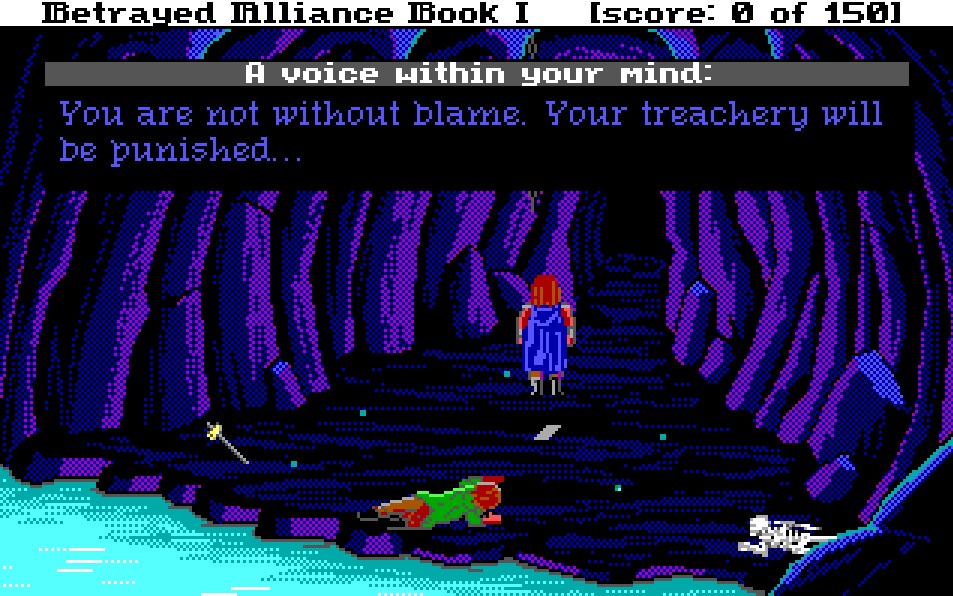
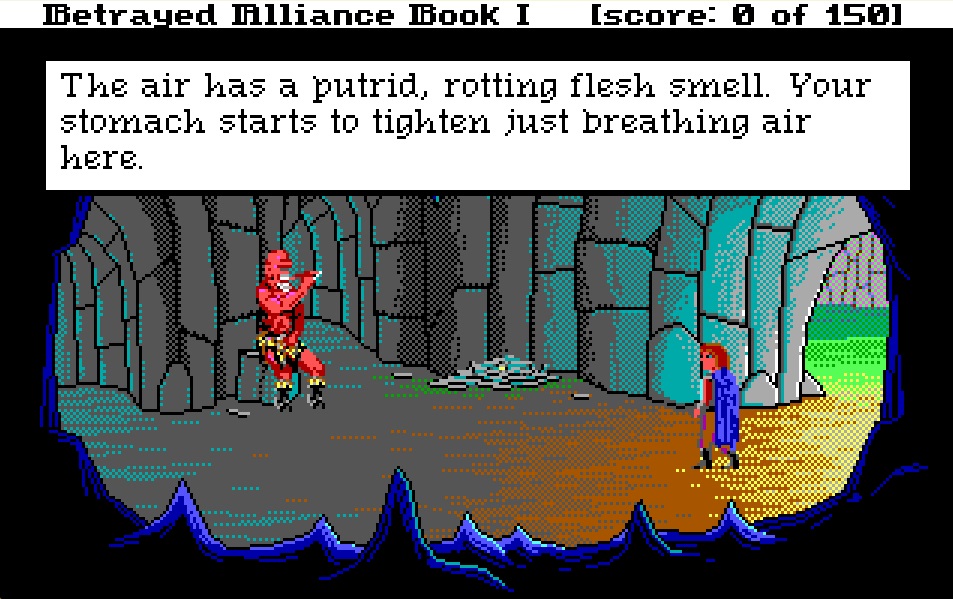
Handed-down versus Discovered
I admit the truth, however, type-parsers are not infinite, not even close. Oftentimes, they don’t even allow as many options as point-and-click! Point-and-click allows you to touch, talk to, look at, and use any item on any hotspot! And yet, it still feels like it was something handed to you, not something you discovered.
Nothing illustrates this lack of discovery as well as character-to-character dialogue. In point-and-click games, dialogue is almost always clicking down the branches of a dialogue tree. Everything is predetermined, packaged up nicely and neatly for you. Here’s all your hints, story, and exposition gift-wrapped for you, you’re very welcome!
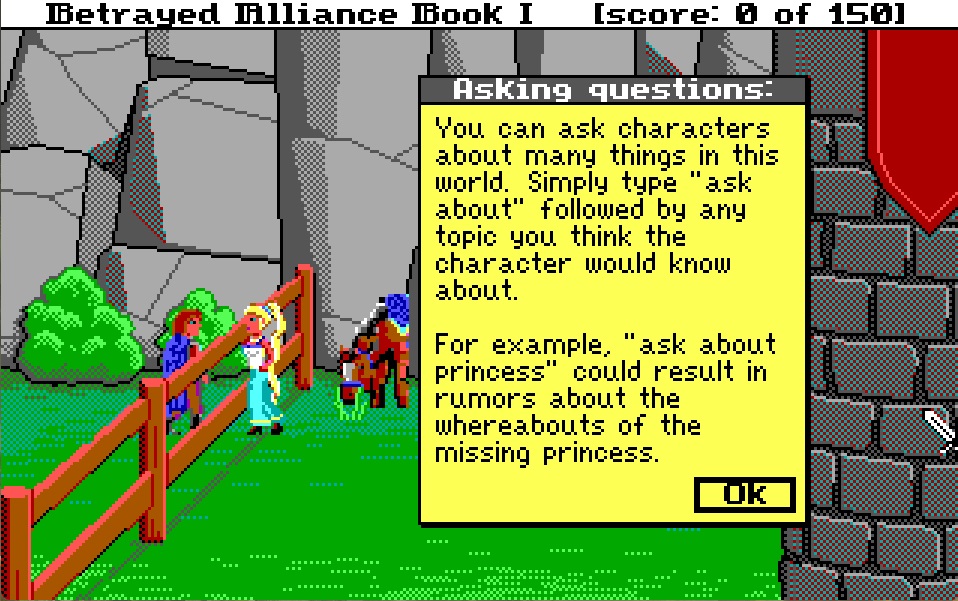
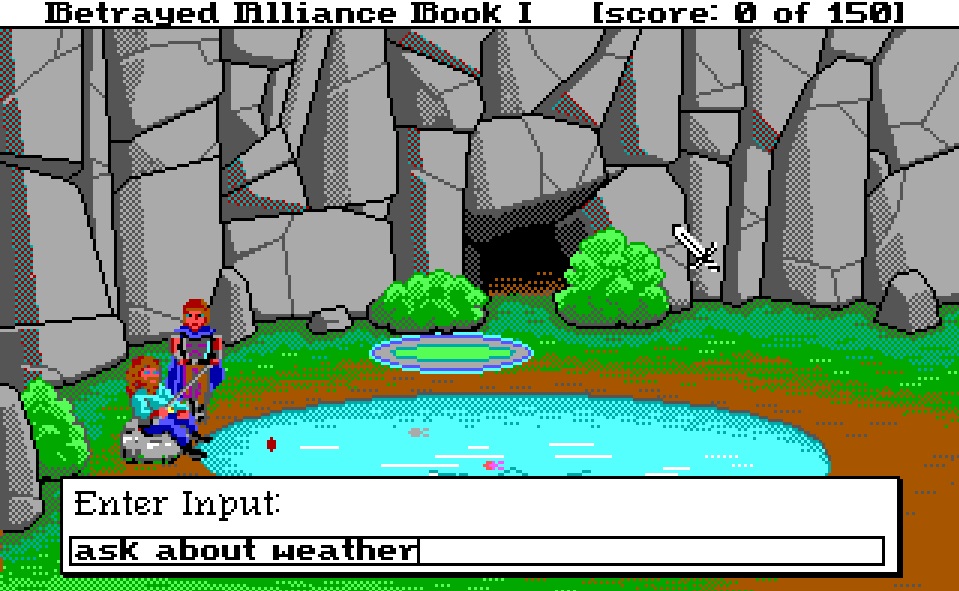
The type parser, on the other hand, puts the player in an active role. They must determine which rabbit holes in the dialog to chase down. They get to play a bit of a detective game just discovering which topics to ask about. Speaking for myself, this small game-within-a-game keeps my attention so much more than clicking down the topics. This also allows the developer to drop extra little nuggets for intrepid players to discover that would otherwise bog down a dialogue tree with needless extras. The parser allows it, because the only ones who will find it, are those who are looking for it.
The Problem with Text-Parsers
That’s all well and good, you might say, but what about the big problem with type parsers that you’re clearly tiptoeing around?
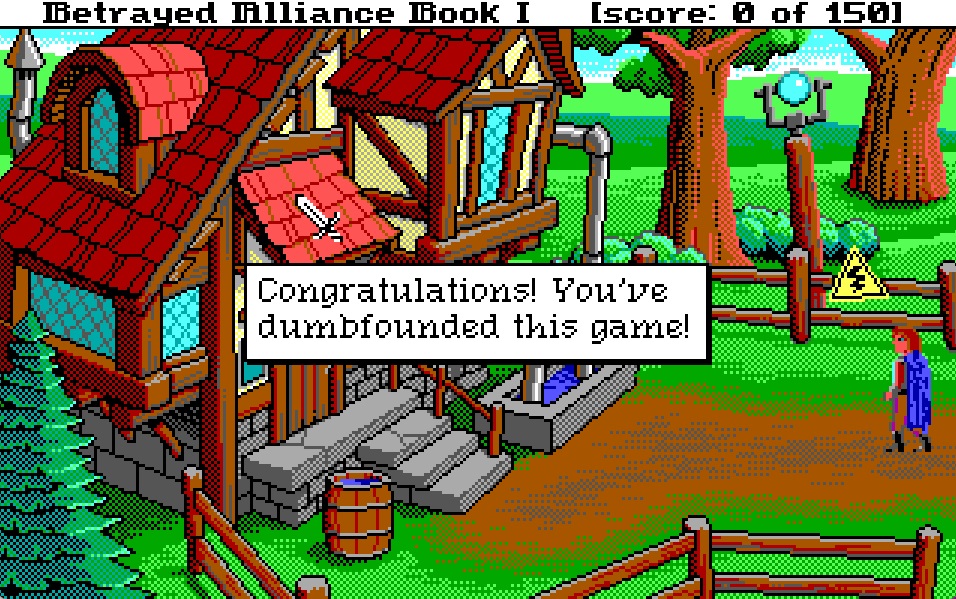
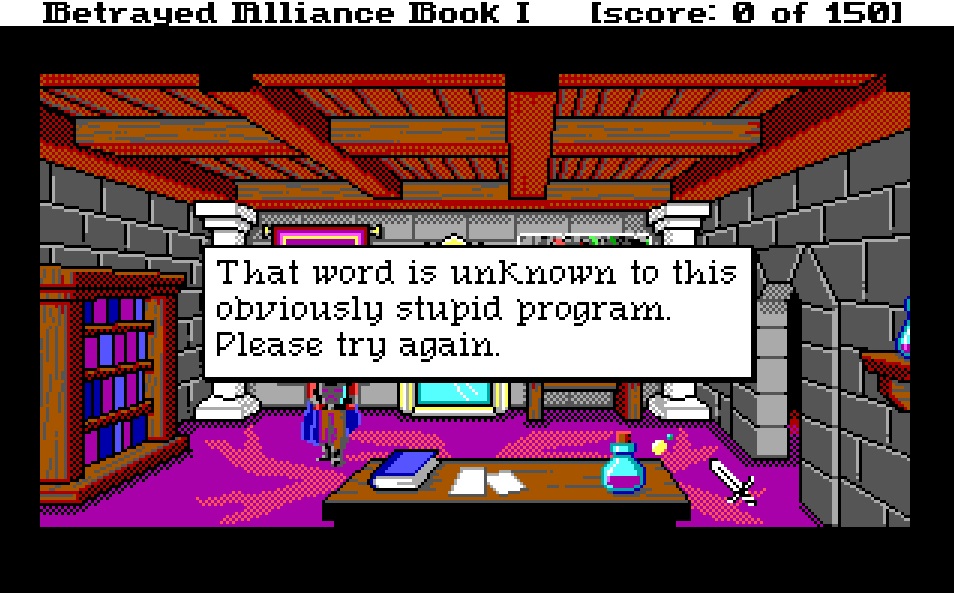
Yes, I know, it is frustrating to type four or five different renditions of the same command only to get, “You can’t do that.” With point-and-click, you just grab the item and click it on the hotspot and, boom, puzzle solved! With the parser you type, “use item,” only to get, “how would you like to use that,” and a litany of reasonable commands that for no good reason don’t work at all.
We’ve all been there, myself no exception, and yes, it is frustrating to have to track down that exact right verb and noun combination. I grant that that is a proper problem with the type parser system. But I do not grant that it is inherent to the type parser and that playtesting and correct design can do a lot to fix that issue.
Oops, I Solved It!
I would also argue that point-and-click’s take item and press it on hotspot can also really streamline a puzzle in a way that removes the player’s delight in discovering a solution. How many times have you clicked an item on a hotspot only for the ensuing animation to solve the puzzle in a way you hadn’t even imagined yet. There is no “how would you like to use that” prompt possible. Clearly, there is no perfect system.
Superiority of Point-and-Click
At this point you’re likely to find yourself disagreeing with me and mounting multiple potential arguments in favor of the point-and-click formula. Don’t worry, you are almost certainly in the right, or at least in the majority. I am only describing why I personally lost a lot of interest in adventure games in the leap from the type-parser to the point-and-click era, and era that persists to this very day! There clearly must be a good reason for it, I sadly can only say, that it just doesn’t resonate with me.
In my final analysis it comes down to the feeling of discovery, which I feel the type parser achieves better than point-and-click.
I’d love to know your thoughts on this issue. Let me know what you think below!
